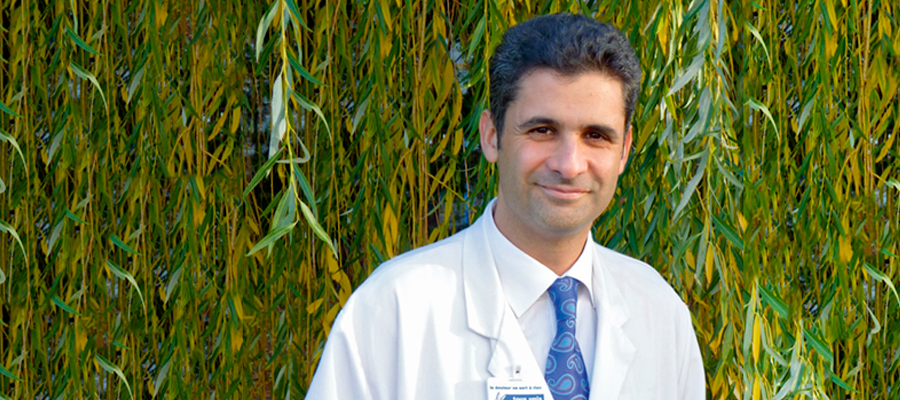Can abiraterone and radiotherapy improve survival for patients with metastatic prostate cancer treated with ADT?
10 Feb 2015
Today, metastatic prostate cancer is both deadly and incurable, and the median survival of patients diagnosed with this disease is just four to five years. In Europe, about 15% of all patients diagnosed with prostate cancer have metastatic disease; in the United States this number is 4%, and in China 68%. Patients with metastatic prostate cancer currently receive androgen deprivation therapy (ADT), and this treatment initially almost always provides them with response. Even so, the disease eventually becomes fatal, as nearly all patients develop castration-resistant disease.
The Peace-1 trial (GETUG-AFU-21, EORTC trial 1201) is now open and aims to improve treatment for patients with metastatic prostate cancer. Prof. Karim Fizazi (photo) of Gustave Roussy in Villejuif, France, and International Coordinating Investigator for this study says, “We designed Peace-1 to see if abiraterone and local radiotherapy, combined with androgen deprivation therapy could improve outcome in patients with hormone-naïve metastatic prostate cancer. We randomize patients into four arms: arm A receives ADT, arm B ADT plus abiraterone, arm C ADT plus local radiotherapy to the prostate, and arm D ADT plus abiraterone plus radiotherapy. The idea is to assess the efficacy of androgen deprivation therapy with and without local radiotherapy as well as with and without abiraterone acetate and prednisone in terms of overall and progression-free survival.”
Treatment for patients in this intergroup multicenter phase III trial is administered until progression to the castrate-resistant stage. It is planned to accrue a total of 916 patients: 458 patients in arms B and D and 458 in arms A and C.
Peace-1 (GETUG-AFU-21,EORTC trial 1201) is sponsored by UNICANCER in collaboration with the French Genito-Urinary Oncology Group (GETUG), the Irish Clinical Oncology Research Group (ICORG), members from the Spanish Oncology Genito Urinary Group (SOGUG), and the EORTC Genito-Urinary Cancers and Radiation Oncology Groups and will be conducted at more than 90 sites located in eleven countries: Belgium, Denmark, France, Germany, Greece, Ireland, Israel, Italy, Poland, Romania, Spain, Switzerland and the Netherlands. Sites are already open in France, Spain, Ireland and Belgium, and have already recruited more than 120 patients. This intergroup trial is supported by an Educational grant from Janssen-Cilag Ltd and Ipsen.
John Bean, PhD
EORTC, Medical Science Writer
Related News
EORTC-1333-GUCG/PEACE III trial endpoint reached
12 Jul 2024
Meet the new EORTC Board
9 Jul 2024
EORTC-1333-GUCG/PEACE III Trial Statement
28 Jun 2024
We are pleased to announce the release of the EORTC 2023 Annual Report
17 Jun 2024
Dr Denis Lacombe, EORTC CEO, appointed stakeholder co-chair of ACT EU advisory group
24 May 2024
Clinical Trials Day 2024: a Q&A on pragmatic clinical trials
20 May 2024
EORTC/EMA workshop suggests an international way forward for treatment optimisation studies
8 May 2024
EORTC’s Participation at the ESTRO Congress 2024
29 Apr 2024
EORTC: Advancing research and treatment for rare cancers
29 Feb 2024
EORTC Fellowship Programme: celebrating more than 20 years of impactful collaboration
22 Feb 2024


